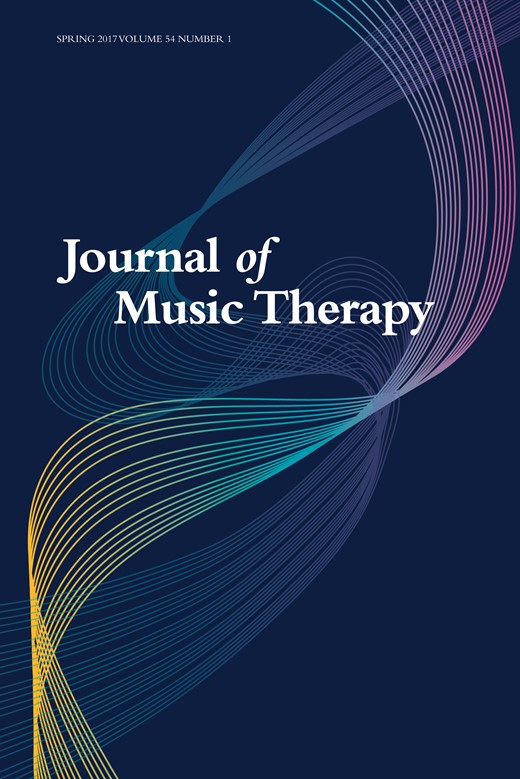-
Views
-
Cite
Cite
Cathy H. McKinney, Timothy J. Honig, Health Outcomes of a Series of Bonny Method of Guided Imagery and Music Sessions: A Systematic Review, Journal of Music Therapy, Volume 54, Issue 1, 1 March 2017, Pages 1–34, https://doi.org/10.1093/jmt/thw016
Close - Share Icon Share
Abstract
The Bonny Method of Guided Imagery and Music (GIM) is a music-centered approach to exploring consciousness for personal growth and transformation. Applications have been reported in a variety of clinical and nonclinical contexts.
The purpose of this study was to review evidence that a series of Bonny Method of GIM sessions may promote positive health outcomes in adults.
This systematic review examined randomized and nonrandomized controlled trials and repeated measures designs that reported psychological or physiological outcomes following a series of at least six individual Bonny Method of GIM sessions. Researchers assessed each study for risk of bias and computed effect sizes for outcome variables.
Of 270 non-duplicate titles retrieved, nine met criteria for inclusion, and eight had moderate or low risk of bias. These included 275 participants 18–78 years of age representing a variety of populations. Multiple studies measured anxiety, depression, mood disturbance, interpersonal problems, quality of life, sense of coherence, and/or psychiatric symptoms and found medium to large effect sizes. Four included physiological measures (systolic and diastolic blood pressure, beta-endorphin, cortisol, and pain) and reported medium to large effect sizes, none of which were replicated across studies in this review.
Evidence is promising that a series of Bonny Method of GIM sessions may be effective for improving both psychological and physiological health and may be therapeutically indicated for adults seeking treatment with medical, mental health, and nonclinical needs. Further research is needed to replicate findings within outcomes and populations.




